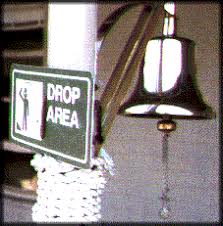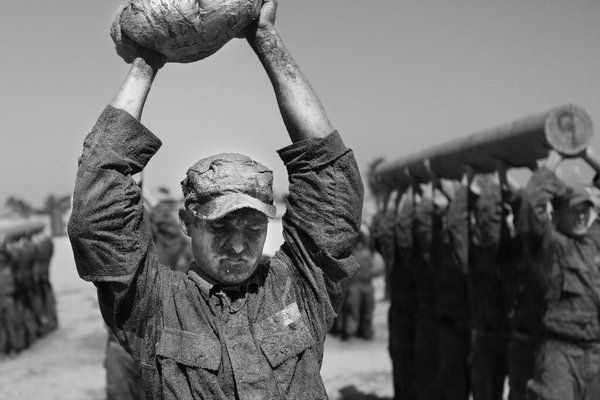One of the most difficult training regimens today is the BUD/S (Basic Underwater Demolition/SEAL) training for Navy SEALs. In the first phase of training, trainees are subjected to an event called “Hell Week”. Hell Week consists of 5 1/2 days of cold, wet, brutally difficult operational training on fewer than four hours of sleep. Hell Week tests physical endurance, mental toughness, pain and cold tolerance, teamwork, attitude, and your ability to perform work under high physical and mental stress, and sleep deprivation. Above all, it tests determination and desire.

Three quarters of trainees do not make it past Hell Week. To signify that they are no longer willing to go on, a trainee would “ring the bell” three times. In his book, “Extreme Ownership”, ex-Navy SEAL Jocko Willink talks about the mentality that causes people to ring the bell. The key about enduring is not the physical, but the mental aspect. When trainees begin to look inward and focus on how cold they are, how tired they are, how miserable they are, that creates a spiral that will eventually cause them to ring the bell. For the trainees that persevere, they are just as cold, tried, and miserable, but they place their focus on others; they focus on not letting their teammates down. They focus on the greater sense of purpose.
When I read that, I immediately thought about the clinical training portion of medical student training (i.e. clerkships, Sub-I’s). While it’s no “Hell Week”, it’s grueling in its own way. While residents don’t “get a grade” for their rotations, medical students do. Add on top of that assimilating to a new team and environment while mastering new material. Add in top of that being isolated from your normal social circle. Also you’re not getting enough sleep. Within this environment, it is not surprising that many students suffer depression, lose empathy, and burn out.
Perhaps there’s something with the SEALs training that we could learn.
I have talked to many third and fourth year medical students who said that the most liberating point of medical school was when they let go of grades. Once they stopped focusing on themselves and their grades and started focusing on their patients and their care team and classmates, medical education became an entirely different experience (in a good way). It’s similar to the moral of the SEAL story. When you focus on yourself, you become weaker. When you focus on others and purpose, you become stronger.
In SEAL training, when one is cold and sleep-deprived, and it’s really hard not to focus on being miserable. However, it is necessary to switch one’s focus towards and outer purpose in order to make it through SEAL training.
Telling medical students not to care too much about grades sounds implausible. However, it is a distinction that a medical student must make in order to become a true professional. (it’s also worth a try because it will make you more resilient!)

Prompt for Personal Reflection
